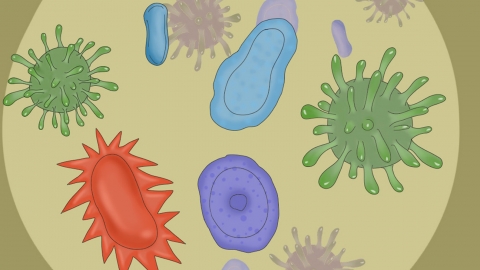Is it okay to take Kugan Granules and Levofloxacin Hydrochloride Capsules for a sore throat due to a cold?
Generally, if a sore throat caused by the common cold is complicated by bacterial infection and there are no contraindications to medication, Keegan Granules and Levofloxacin Hydrochloride Capsules may be taken under a doctor's guidance. However, they should not be used in cases of pure viral infection or when there are contraindications. If in doubt, it is recommended to seek medical advice in advance. Detailed analysis is as follows:

Keegan Granules help relieve symptoms such as sore throat and cough caused by the common cold, while Levofloxacin Hydrochloride Capsules are effective against susceptible bacteria. If a secondary bacterial infection develops during the later stages of a cold—manifesting as pus in the throat, yellow sputum, persistent fever—and bacterial infection is confirmed through examination, combining these medications may be appropriate provided there is no drug allergy and liver and kidney functions are normal. This combination can simultaneously alleviate symptoms and combat infection, promoting recovery.
However, most colds are caused by viral infections, in which case Levofloxacin Hydrochloride Capsules are unnecessary. Misuse of antibiotics can disrupt the body's normal microbial flora and increase the risk of antibiotic resistance. Additionally, the combination should be avoided in individuals allergic to any component of the medications, in minors, pregnant women, or those with severe liver or kidney impairment, or a history of tendon injury, to prevent allergic reactions, adverse effects on growth and development, or increased organ burden.
Prior to use, the type of infection must be clearly identified, and a physician should determine whether combination therapy is appropriate. Medications should be taken strictly according to the prescribed dosage and duration; self-extension of treatment is not advised. During treatment, drink plenty of water and avoid spicy or irritating foods. If adverse effects such as nausea or rash occur, discontinue the medication immediately and seek medical attention.




